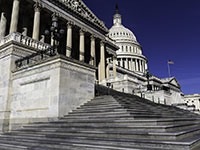On September 2, 2015, the North American Securities Administrators Association (NASAA) filed an amicus brief siding with Montana and Massachusetts in a bid to overturn the SEC’s new capital-raising rule, titled Regulation A but commonly referred to as Regulation A+. The NASAA, a non-profit association of state, provincial, and territorial securities regulators in the United States, Canada, and Mexico, includes securities regulators from all 50 states and the District of Columbia. The organization’s purpose is to “protect investors from fraud and abuse in connection with the offer and sale of securities.”
Friend of the Court and Friend of the Little Guy? State Securities Regulators Tell D.C. Circuit in Amicus Brief that SEC’s Regulation A+ Is Too Expansive in Defining “Qualified Purchasers”











